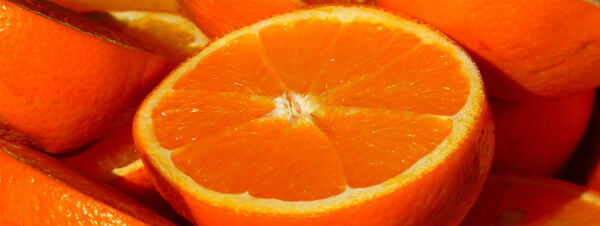The gallbladder is a pear-shaped organ with a very important job of collecting and storing bile — the fluid that helps with digestion through the breakdown of fats into fatty acids. Not everyone knows the significance of the gallbladder, thus, neglecting the organ.
Although the gallbladder isn’t necessary to keep the body healthy, most people are unaware that gallstones can trigger a variety of moderate to severe symptoms such as abdominal pain, bloating, nausea, and vomiting. When these gallstone symptoms become frequent, recurrent, and intolerably uncomfortable — the typical treatment is to remove the gallbladder through surgery.
According to John Martin, MD, “The majority of people with gallstones never develop symptoms their whole lives.” The associate professor of medicine and surgery, and director of endoscopy at the Northwestern University Feinberg continues that “Once you start to develop symptoms, you’re going to need to have the gallbladder taken out.”
How Food Affects the Gallbladder
The gallbladder functions by storing and concentrating the bile produced in the liver, which is located directly above it. The gallbladder releases the bile into the small intestine, enabling food digestion.
The gallbladder is a sensitive and borderline fragile organ. Maintaining a healthy diet full of nutrient-rich foods is a must to help keep it in the pink of health. Certain foods can protect and promote a healthy gallbladder, whereas other food groups increase the likelihood of problems such as inflammation or gallstones.
There’s no such thing as a gallbladder diet, per se, but certain foods do help in keeping the gallbladder in prime condition. Here are the following food types to incorporate into a healthy-gallbladder diet:
-
Oranges
There are many known benefits to citrus fruits, oranges being the most popular kind. It is unarguably are one of the healthiest fruits for the body. Foods rich in vitamin C like oranges are excellent for maintaining a healthy gallbladder. Multiple studies have shown how vitamin C may provide a preventative effect against gallstones. In addition, a study by German researchers found that giving the body its daily dose of vitamin C can cut the risk of gallstones in half.

-
Beans
“A meal high in fat stimulates more bile release,” explains Sheila Reddy, MD, a gastroenterologist with Austin Gastroenterology in Texas. She adds that “When there is too much fat or cholesterol in your diet, it can crystallize in the bile and form gallstones.”
Protein is essential to make enzymes, hormones, and other body chemicals. Although red meat is often the go-to source of protein, there are many plant-based options available on the market. Focusing on eating a plant-based diet can not only improve cholesterol levels, but it also aids in reducing the risk of developing gallstones. Plant-based proteins like soy, beans, and lentils are nutritious alternatives to fatty red meat, which is one of the primary culprits behind gallbladder inflammation.
-
Bitter Greens

Bitter greens are not exactly a crowd favorite, but there is no denying that they are great for setting up healthy fat digestion. “Eating bitter foods like okra, broccoli, endives, and bitter artichoke before fatty foods will stimulate bile production,” explains Tara Nayak, ND, a naturopathic doctor in Philadelphia. “When the gallbladder doesn’t produce enough bile or when its release is blocked, dire symptoms occur.” Other bitter greens include kale, arugula, leeks, dill, dandelion greens, parsley, and pickled ginger.
-
Sauerkraut
Sauerkraut is finely cut cabbage that has been fermented by various lactic acid bacteria. It is one of the foods rich in probiotics, which plays a significant role in promoting a healthy gallbladder diet. Another popular source of probiotics is yogurt, but it does not necessarily provide a significant health benefit to the gallbladder. Yogurt with active cultures can cause intestinal irritation, which can trigger diarrhea and bloating. For optimum gallbladder health, it’s best to limit or omit dairy from one’s diet.
-
Beets
Beets are widely cultivated as a nutritious food source for humans and livestock. It contains betaine, a substance that not only aids in stimulating the flow of bile to break down fat, but also protects the liver. Beets should be a staple in a gallbladder diet. They have a crunchy texture that turns soft and buttery when cooked correctly. “Drink beet juice, beet soup, or even add beets to a smoothie to get the benefits,” Nayak says.

-
Flaxseed
According to the Mayo Clinic, foods that are high in fiber have amazing heart-health benefits, including the reduction of high blood pressure. Fiber enables the digestive system to keep moving, which helps wash away toxins and old bile out of the body.
When the body becomes deficient in fiber, unwanted substances can build up. Sluggish bile flow, to be specific, can cause a host of symptoms including bloating and constipation. Flaxseeds are an excellent solution to this problem, says Will Bulsiewicz, MD, a gastroenterologist in Mount Pleasant, SC. “Ground flaxseed makes an excellent fiber supplement and can be added to cereal, smoothies, and juices to increase fiber intake.” As an added benefit, the body gets a good dose of healthy, gallbladder-friendly fat in the form of plant-based omega 3s.
-
Water

Water is not considered food, but there’s no denying that it’s a staple in a healthy diet. Staying hydrated is vital for many aspects of a person’s overall health and well-being. In case further evidence is needed to prove that one must drink at least eight glasses of water a day — gallbladder function is more susceptible to failing without adequate H2O.
To keep gallstones at bay, commit to drinking plenty of quality water to flush out excess cholesterol and keep bile production running smoothly.
The Takeaway
Gallbladder problems should not be taken lightly. They can be excruciatingly painful and, in some cases, dangerous. Eating the right foods packed with vitamin C, fiber, probiotics, and other nutrient-dense counterparts can not only improve and protect the overall health of the gallbladder, but it ultimately keeps the body in check and at its best condition.


